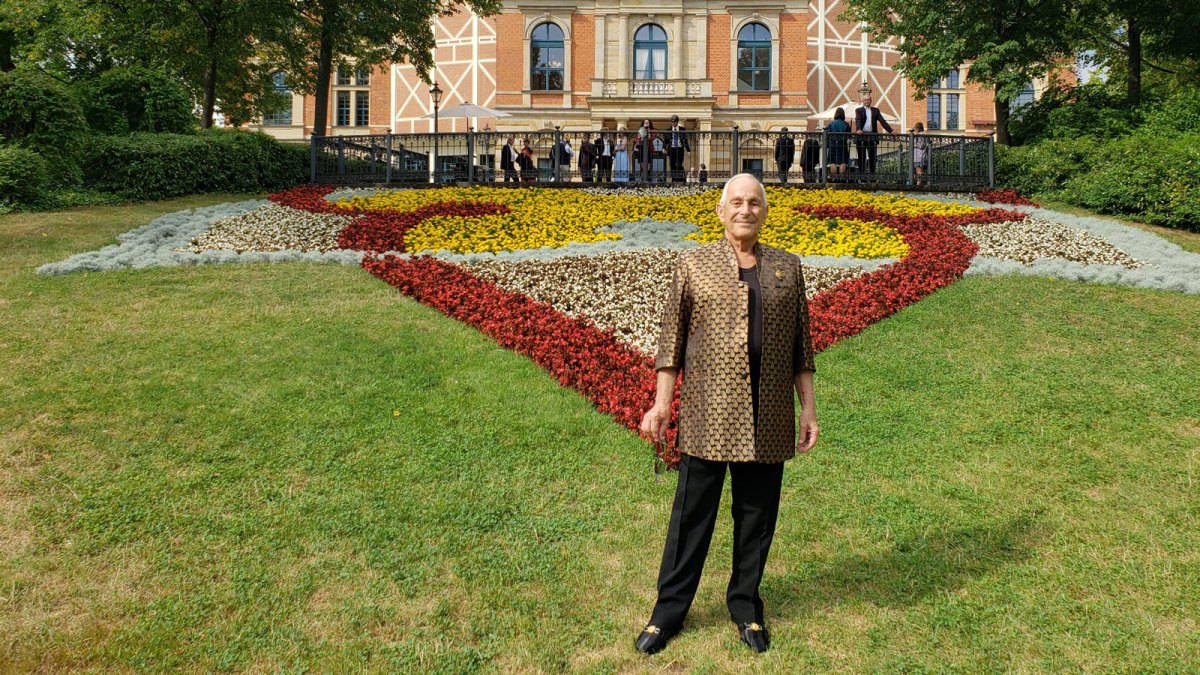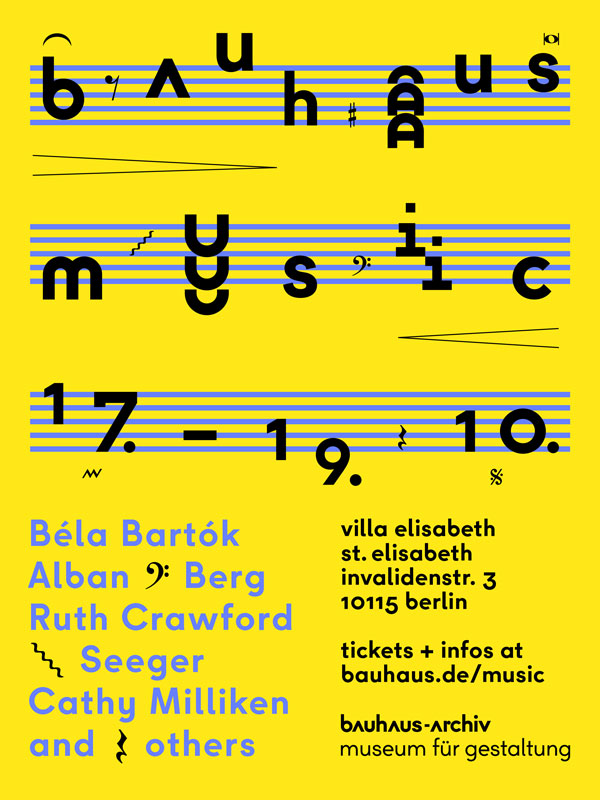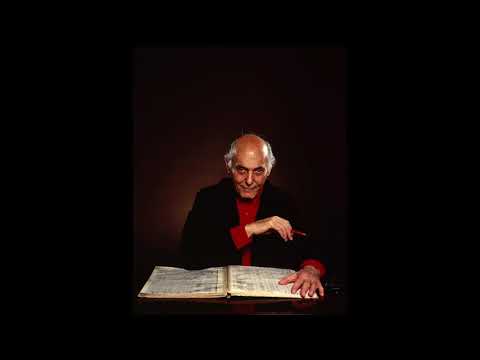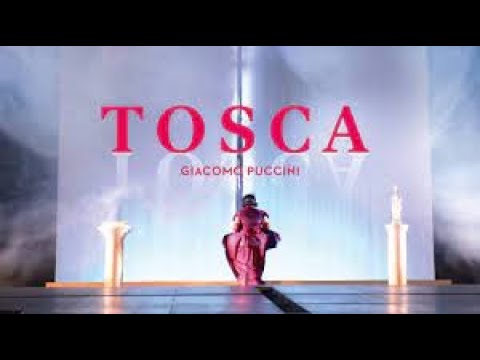Before the COVID-19 pandemic, Brian Greis, a retired obstetrician-gynecologist who lives with his husband in Fort Lauderdale, Florida, attended some 200 classical concerts a year and spent up to eight out of 12 months on the road traveling to attend performances. Greis never harbored serious ambitions of being a classical musician, but since his childhood in Johannesburg, South Africa, he has been an extremely serious listener—a nomad in search of aesthetic transcendence. I spoke to Greis on a video call from his home about the first piece he ever heard, the concert hall as a spiritual space, and that time he met Joan Sutherland.
VAN: When did your interest in classical music start?
Brian Greis: I was about 12 years old. I did not have any introduction to classical music through my family, they were totally unaware of classical music. I got chickenpox or something else, I was confined to bed. The mother of a friend of mine was a piano teacher, and she brought to me—to keep me occupied—a music collection of, at that time, 33 RPM LPs. I was too sick to read or to concentrate on anything, but I had this portable gramophone next to my bed and for lack of anything better to do I put on these records.
And I remember very clearly the first piece of classical music I ever listened to. She chose very wisely: “Swan Lake.” I was instantly captivated, and I became a slave to the beauty of the music. Right from the beginning, something intangible and undefinable happened. The music reached a spot in me and elicited emotions in me which I did not know existed. My history of listening to classical music goes back—now that I think of it—probably 63 years.
Did you consider becoming a musician?
I knew from a very early age that I was going to become a doctor: We had a dog that was mated and became pregnant, and I watched the birth at a very early age—seven or eight—and I was so fascinated by the process that I knew I was going to become an obstetrician-gynecologist. My interest in music disturbed my father very much, because he thought I was going to veer away from this aspiration and pursue music instead. He actively discouraged the pursuit of music. He said to me, “You want to become a doctor, become a doctor, you’ll earn enough money to indulge your interest in music. Become a musician, you’ll starve all your life.”
And you did become a doctor.
I did, and then I came to Chicago in July of 1974, and then I lived in Chicago for 25 years. I had a private practice. My stay in Chicago was musically magical because it was the halcyon years of the Chicago Symphony Orchestra. To my mind, they were the best orchestra in America at that stage. We had [Georg] Solti and [Carlo Maria] Giulini. There were so many exciting, unforgettable musical experiences in Orchestra Hall—I heard music at a standard which would have been totally impossible in South Africa. That sort of perfection existed in few orchestras in the world, let alone in Johannesburg.
Was your father right? Did pursuing medicine give you enough money to indulge your passion in music?
I was fortunate: At that stage doctors earned a lot of money and I invested wisely. OB-GYN in America is a back-breaking specialty. After 25 years, I was burnt out on a professional and a personal basis. And I was comfortable enough to retire; I retired at the age of 50. For the last 25 years, my life has consisted in a very active pursuit of a specific performance or a specific conductor or a specific artist or specific opera. I traveled very actively over the last number of years until COVID-19 interfered with all of our lives. I could be away from home for seven to eight months of the year, mostly in Europe.
Before COVID-19, roughly how many performances would you see in a year?
I structured my nights so that very, very few nights were ever free. I mean, I’m totally crazy. I could be in Berlin, for example. And there could be a more appealing concert the next night in Leipzig. And I would get on the train, go to Leipzig for a day, and come back to Berlin. I think I easily did 200 performances a year during that time.
I’m also very interested in theater, and if you count what happens in London… There are the opportunities for matinees in London, so with the combination of theater and music in London, it was not unusual to attend 10 or 11 performances a week. Of course, you go to a city like Vienna, and you can go to three concerts on a Sunday. And I did. And it never became a blur. I was cognizant of the performances.
Now that I’m getting older, that sort of backbreaking schedule has come to an end. The last couple of years I do not run around. I tend to go to, say, Berlin and I stay in Berlin for 10 days rather than running around on Deutsche Bahn as much as I used to.
The latest from VAN, delivered straight to your inbox
How do you decide what specific artworks and artists you want to pursue in a given year?
Well, I need to relate how my mind has worked over the years. I was introduced to opera relatively early in my discovery of music. I remember going to a record store in Johannesburg and they were very knowledgeable—it was the equivalent of what America had as Tower Records. I had started listening to music and I went to this shop one day. I said, “I want to expand, I want to listen to opera, but I know very little about opera. Mention a couple of albums. Tell me what I should start listening to.” The guy said, “I think what you should do is start with this opera.” And he handed me an RCA recording of “Tosca” with Price and Di Stefano, conducted by Karajan. Of course, I was captivated. I’m looking at the album on my shelf right now.
I started listening more and more, first with the easy stuff, the bel canto repertoire, the standard Puccini, Verdi. During the course of this, I totally fell in love with the artistry of Joan Sutherland. Now I was in Johannesburg, which is the other end of the world, and I was reading about all the performances that Sutherland was giving. I was determined to hear Sutherland live, which I eventually did for the first time in Hamburg in the early ‘70s, where she sang Cleopatra from “Giulio Cesare.”
At that stage I was working so I didn’t have the [same] sort of freedom, but a lot of my life was in the pursuit of hearing performances of Sutherland. I have never lost my love for what she did. At the time, we lived in an age of great vocal stars. I came to the scene too late to ever hear Callas live, though I have virtually every recording she made on my shelves.
Then there was a hiatus of people that excited me and a bit of disillusionment because I thought that some mediocrity set into the international vocal scene. Until a trip to New York in 2006, where there was a performance at the Met of “Lohengrin.” Someone was singing the title role whom I didn’t even know. I remember sitting in the orchestra seats. Lohengrin made his entrance, and I thought that I had died and gone to heaven. I had never heard a voice like this—in the Wagnerian repertoire especially—and I was absolutely startled. That man was Klaus Florian Vogt. Starting around 16 years ago, Klaus became a very, very important part of my cultural planning. If he was singing, I would be [there], and that has persisted until the present time.
As far as artists go that I plan [to see]… [In 1987], José Carreras got desperately ill. He had a bone marrow transplant, and they scheduled a concert after he had recovered. There was the return concert at Carnegie Hall. And I remember flying into New York specifically for that concert. The hall was packed; it was really difficult to get a seat. As Carreras came on to the stage, a banner was unfurled with “J.C. Superstar” on it, and the cheering went on for minutes and minutes. Carreras stood there totally overwhelmed and dumbfounded. The audience would not stop applauding, until eventually, after about five, seven, ten minutes, he had to hold up his hands and say, “I have to walk off the stage now because if I don’t”—he hadn’t sung a note—“I’m going to start crying. And if I start crying, I can’t sing.”
I remember the tears rolling down my face during that concert. Music affects me deeply. It reaches a point in my soul that nothing else has ever done. I’m Jewish, and I’ve never had a spiritual moment in a synagogue. My spiritual moments, my moments of ecstasy, have always been in concert halls and opera houses.
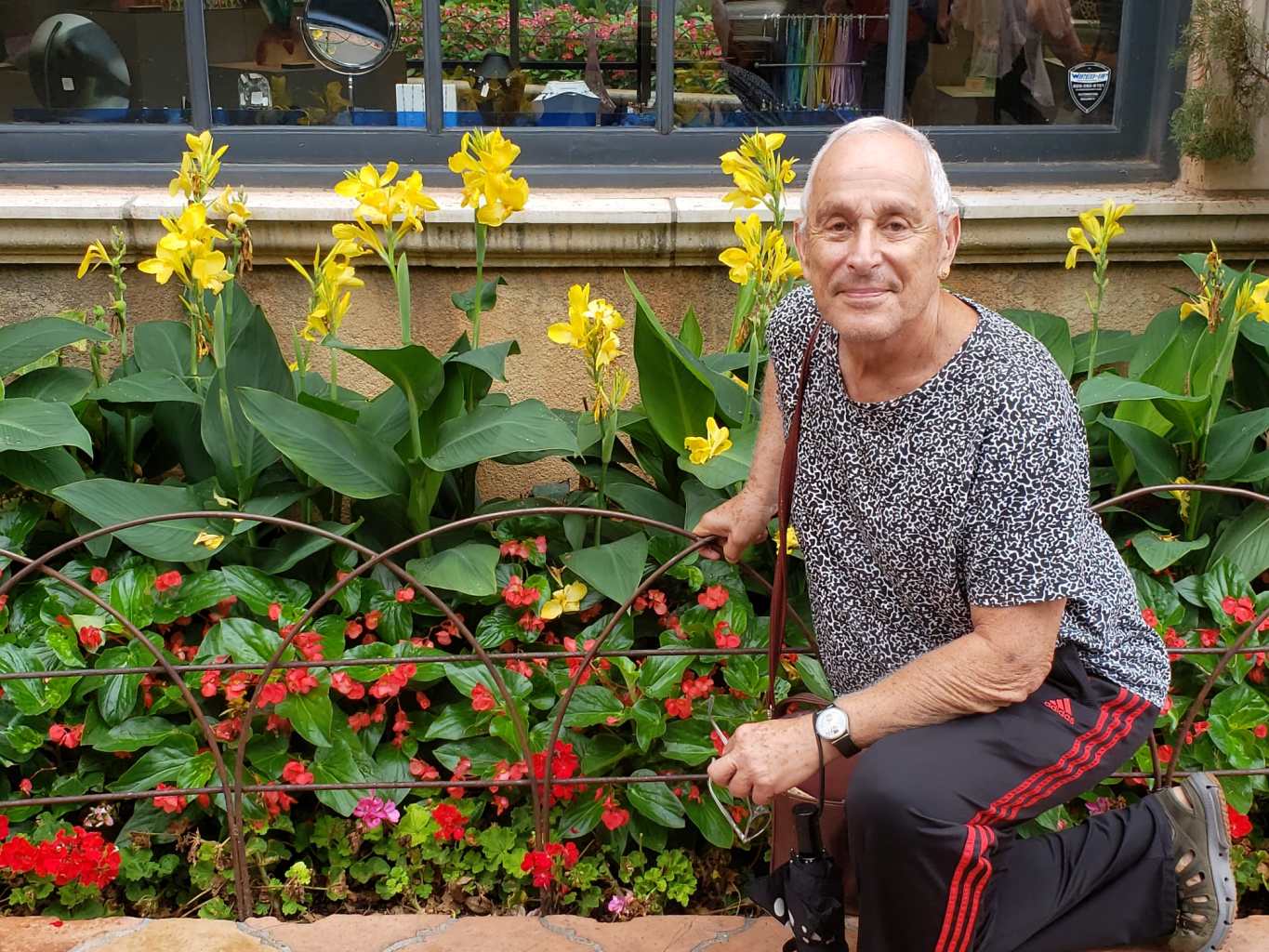
Have you read The Queen’s Throat by Wayne Koestenbaum, about queerness and opera fandom?
Yeah, it’s an interesting book. There’s something that I find a bit derogatory about the term “groupie.” It’s not quite where it should be. I remember the first time I met Sutherland, it was in Hamburg. I waited for her: I had bought a bouquet, and I made a point of buying a bouquet of South African national flowers, so it had strelitzia and proteas. I remember being so dumbfounded and so overwhelmed that I was actually standing in the presence of Joan Sutherland. I handed her the bouquet, and she started asking me questions, and I was tongue tied. I could not answer a question that she asked. She must have thought I was a blubbering idiot. [Laughs.]
A couple of years ago, I was in Covent Garden. And at the intermission, there was a gentleman that I recognized. He was sitting alone at a table, and I said, “Do you mind if I join you for a few minutes?” It was [Sutherland’s husband, conductor] Richard Bonynge. I said, “I just need to tell you the part that you and your wife played in my life.” He was so gracious and that was a real catharsis to actually be talking to this man who was married to Sutherland.
In Madrid one time, Klaus Florian Vogt had sung [“Walküre”], and we had dinner together afterwards. The agent who represents him in Spain had also represented Sutherland and had been a very close personal friend of Sutherland. This agent was telling me about his relationship with Sutherland and how she knew she was dying. I sat there and I was moved to tears. You can see I’m a little bit of a nut. [Laughs.] ¶
Update, 2/2/2023: An earlier version of this article misstated the opera Klaus Florian Vogt sang in Madrid. It was “Die Walküre,” not “Lohengrin.” VAN regrets the error.
Subscribers keep VAN running!
VAN is proud to be an independent classical music magazine thanks to our subscribers. For just over 10 cents a day, you can enjoy unlimited access to over 875 articles in our archives—and get new ones delivered straight to your inbox each week.
Not ready to commit to a full year?
You can test-drive VAN for one month for the price of a coffee.

